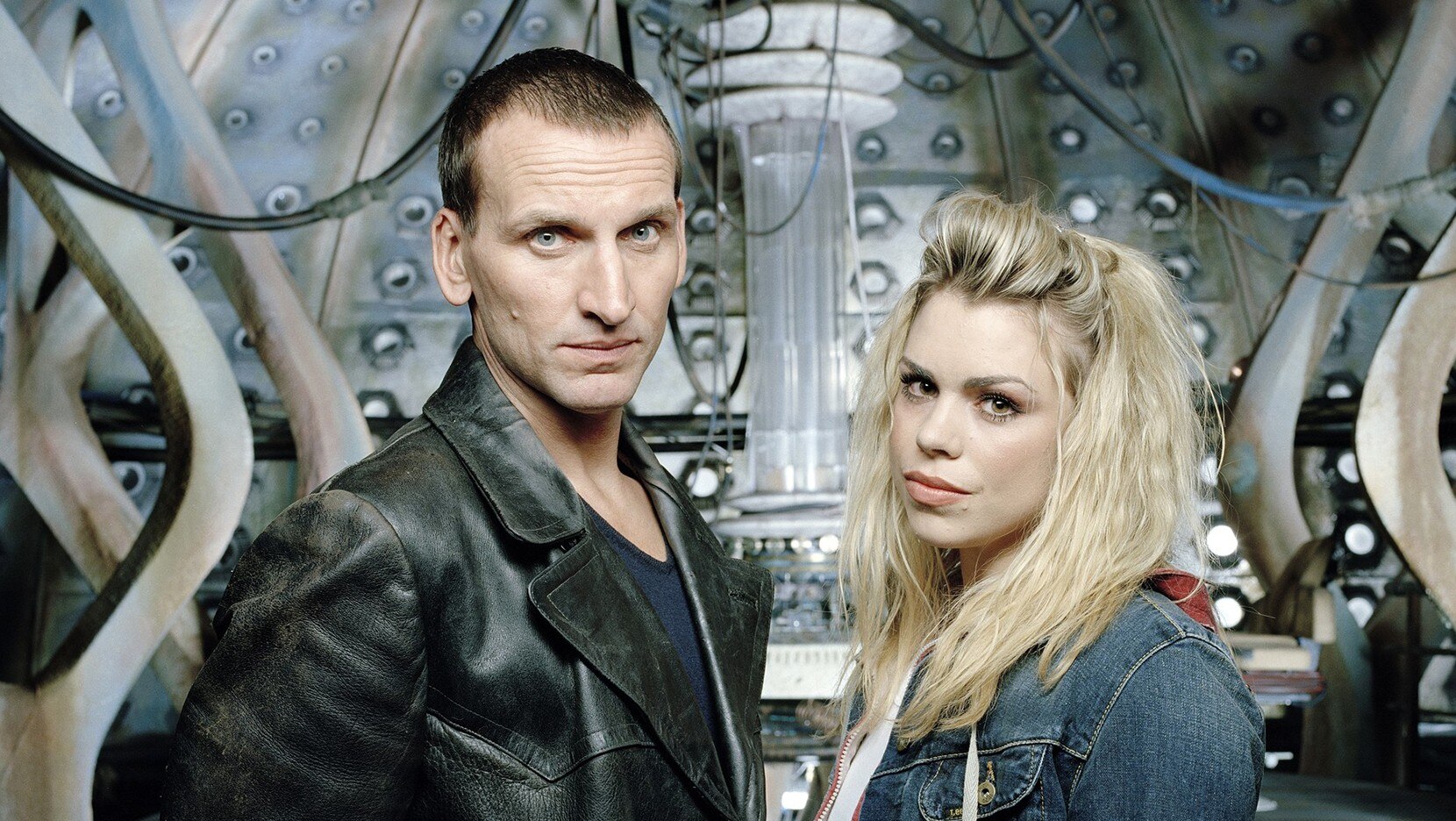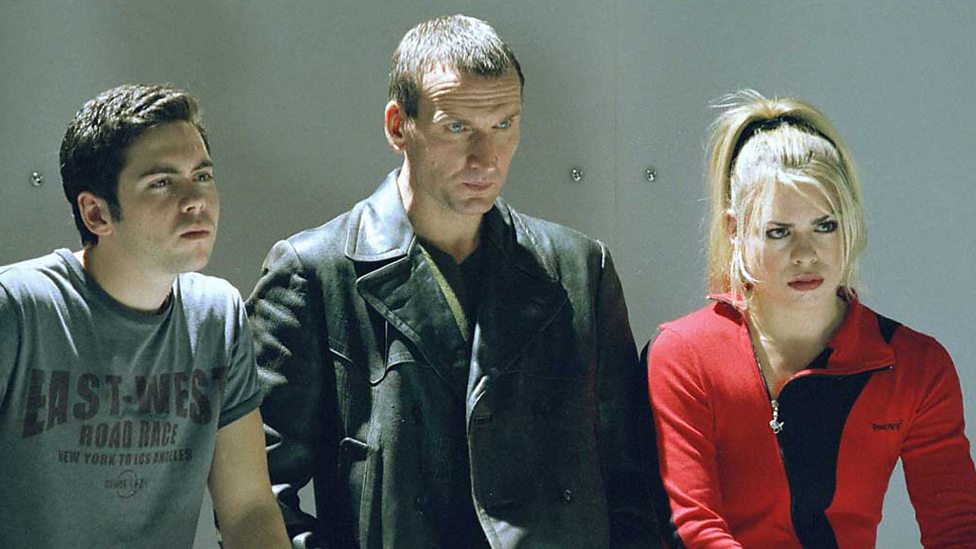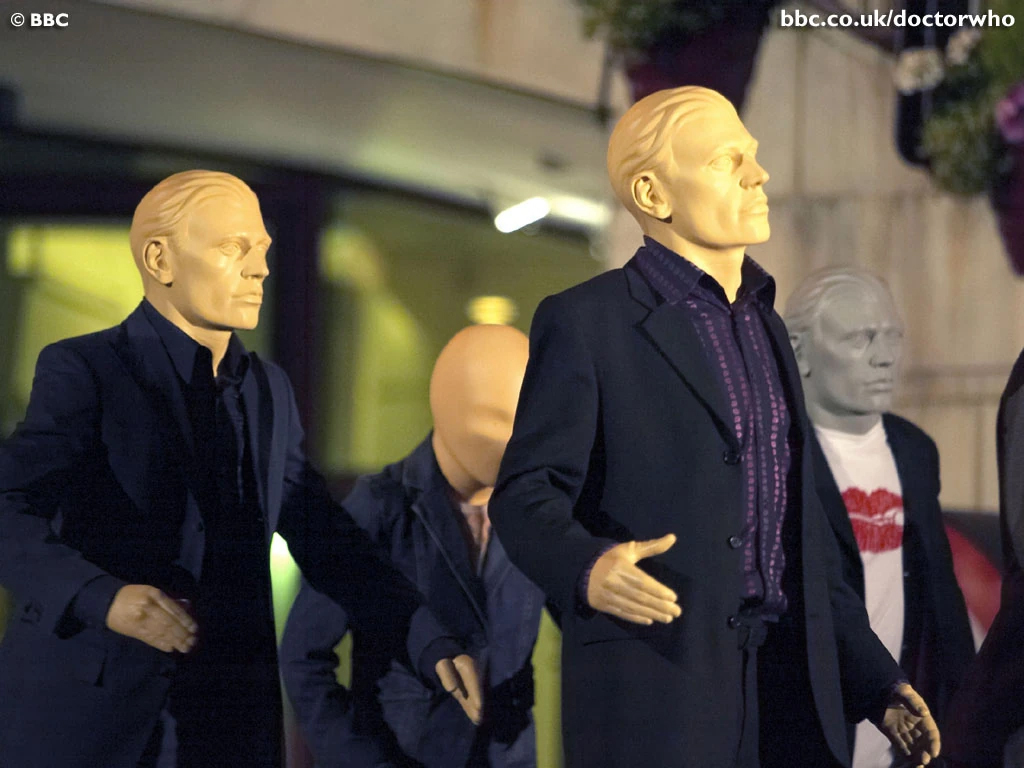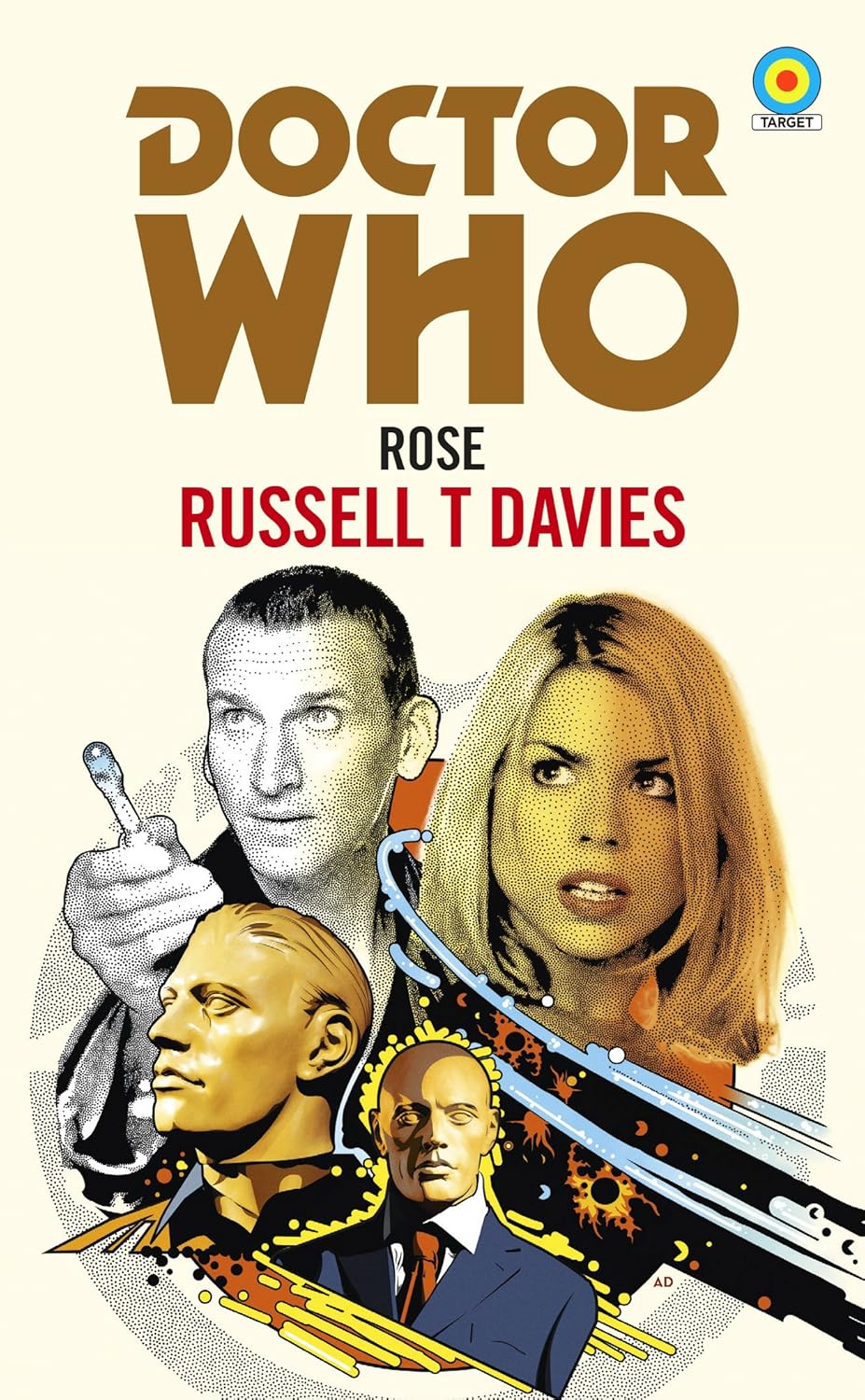Without Russell T Davies, we might not have any ‘new’ Doctor Who to enjoy, certainly not on TV. So how did the show go from a discarded remnant of yesteryear to one of the BBC’s most lucrative properties?

As you probably know, Doctor Who was cancelled in 1989, and only enjoyed one brief TV movie in the mid 90s. Fans worked hard to keep the flame alive through novels, audio adventures and animated series, but there’s no denying that the programme was becoming increasingly ‘cult’ – a fondly-remembered show from the past. But a dead one.
The writer Russell T Davies, on the other hand, was not only a fan but a professional, established screenwriter, and he had been lobbying the BBC for years to bring back Doctor Who. And against all the odds, he was finally asked, back in 2003. And he said yes. And Doctor Who was recommissioned. It was staggering, and it was hard to believe at the time; there were always rumours about the show returning, but none of them had ever come to fruition.
This time, though, it was clear that the BBC meant it, and Russell T Davies had bold plans for a modern interpretation of one of his favourite shows. This vision started to take shape quickly with the (perhaps surprising) casting of Christopher Eccleston as the eponymous hero. Eccleston was frequently regarded as a more ‘serious’ actor who played gritty, ‘tough man’ roles, and perhaps wasn’t an obvious choice for the Time Lord’s ninth incarnation.

Another one of Russell T Davies’ surprising casting decisions was the singer-cum-actor Billie Piper. When she was announced as Rose Tyler, it’s fair to say that there was some derision; in the public’s eye, she was still widely regarded as a 90s pop singer and many people had a hard time seeing her as the Time Lord’s companion. After all, not many people had seen her act; they didn’t know what she was truly capable of.
However, in subsequent interviews, Russell T Davies described Billie Piper as the show’s secret weapon; he knew just how good she was, and the impact that she was going to have on the show. And as it transpired, he was right; Billie Piper was staggeringly popular – almost unprecedently so. Indeed, 20 years on, she is still talked about and fondly remembered, and could even be regarded as the modern generation’s Sarah Jane Smith. She was even offered her own spin-off series at one point, even though the plug was ultimately pulled.
Another thing Russell T Davies revolutionised was the show’s format. Inspired by American shows like Buffy the Vampire Slayer and Smallville, Davies presented a version of Doctor Who that told shorter, punchier stories with season-long plot arcs culminating in the reveal of The Big Bad. Prior to this, Doctor Who hadn’t really taken this approach to storytelling, except in a more casual way with Season 16‘s Key to Time and Season 18‘s E-Space Trilogy. One could even argue that Russell T Davies’ new approach to narrative structure hastened the arrival of today’s ‘boxset culture,’ where whole seasons could be consumed en masse as if they were one giant story.
It’s also important to remember that Russell T Davies could have gone completely ‘off the rails’ if he’d wanted to, in terms of diverting from the classic series. Who knows, he could have turned the TARDIS‘ shell into a chemical toilet, or even rebooted the entire franchise and made Christopher Eccleston the new canonical First Doctor. He could have turned the Daleks into robotic spiders, changed the theme music, made the Doctor a human inventor who builds a time machine in his backyard, and so on. He could have, effectively, thrown everything away and started again.
But much of Russell T Davies’ success depended on his careful straddling of the past and the present. He forged a new path for the series, and honoured what came before. The very first episode, for example, saw the return of the 70s monster the Autons, and paid homage to the iconic scene where the killer dummies smash out of their window displays and start terrorising the passing shoppers. He even used Delia Derbyshire’s original arrangement of the theme tune for the opening titles.

Moreover, Russell T Davies’ opening season also has some thematic links to the season that preceded it, way back in 1989. A person could easily sit down with 2005’s Doctor Who after watching ‘Survival‘ and see the natural progression. After all, towards the end of the McCoy era, the writers were veering towards more emotionally-driven stories, particularly where the companion was concerned, and were utilising gritty suburban backdrops for context. As such, it’s possible that Davies was directly inspired by Doctor Who of the late 80s.
He did, however, make a number of bold creative choices that moved Doctor Who‘s story forward. Russell T Davies took the decision to wipe out the Time Lords completely, having them annihilated in the Last Great Time War, and the Daleks too. The Doctor was now the last of his kind, travelling all alone in a friendless universe.
Russell T Davies also took the decision not to launch the series with a regeneration. This was, perhaps, one of his more controversial choices as it created something of a void between the classic series and the new. His predecessor, Philip Segal, took a different view, and felt that it would have dishonoured Sylvester McCoy if he had not been given the opportunity to transition into Paul McGann. But in this case, the new series of Doctor Who simply started with a fresh new face – the Ninth Doctor (possibly) who implied that he had very recently changed.
It’s not an exaggeration, therefore, to say that there would be no Doctor Who on TV today had it not been for Russell T Davies. It took someone in his position to pester the BBC with enough persistence (and demonstration of talent) to bring it back, and bring it back with consummate skill. Was he handed the series on a plate? Yes, to an extent, but as someone once said, it was a very hot plate with a crack down the middle. It could have easily fallen apart.
So tell us, as we celebrate the 20th anniversary of Doctor Who‘s return: What are your fondest memories of Russell T Davies‘ writing? And which is your favourite episode from his era(s)? Let us know in the comments below.









Leave a Reply